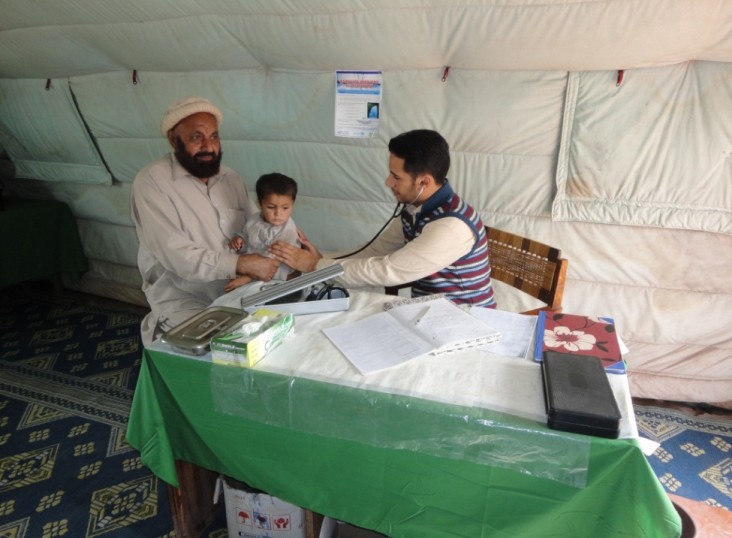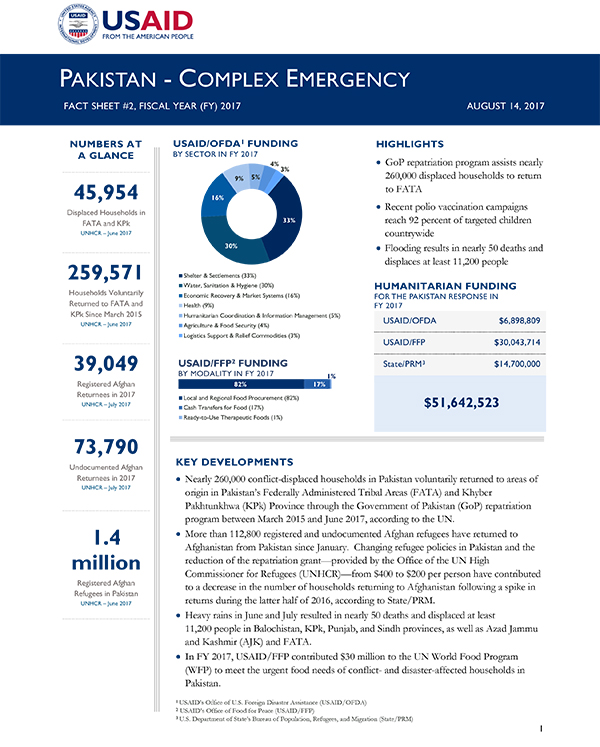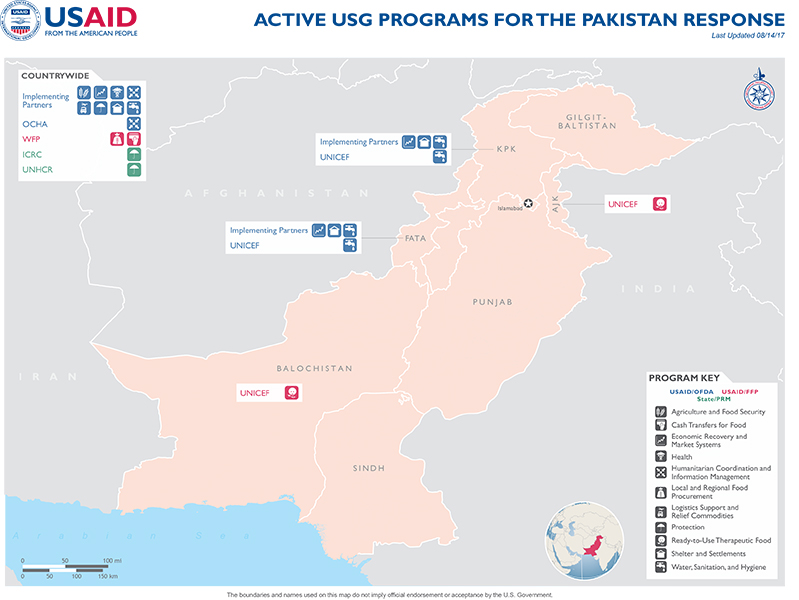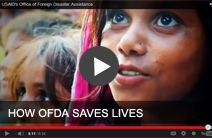- What We Do
- Agriculture and Food Security
- Democracy, Human Rights and Governance
- Economic Growth and Trade
- Education
- Ending Extreme Poverty
- Environment and Global Climate Change
- Gender Equality and Women's Empowerment
- Global Health
- Water and Sanitation
- Working in Crises and Conflict
- Disaster Assistance
- Political Transition Initiatives
- Conflict Mitigation and Prevention
- Countering Violent Extremism
- Disaster Risk Reduction
- Peacebuilding and Reconciliation
- Providing Safe & Secure Environments for Development
- Recovering From Crisis
- Resilience
- Tech Challenge for Atrocity Prevention
- World Humanitarian Day
- U.S. Global Development Lab

Latest Pakistan Fact Sheet
Pakistan Map - 08-14-2017 ![]() (pdf - 758k)
(pdf - 758k)
view text version [pdf, 229kb]
Key Developments
Nearly 260,000 conflict-displaced households in Pakistan voluntarily returned to areas of origin in Pakistan’s Federally Administered Tribal Areas (FATA) and Khyber Pakhtunkhwa (KPk) Province through the Government of Pakistan repatriation program between March 2015 and June 2017, according to the UN.
More than 112,800 registered and undocumented Afghan refugees have returned to Afghanistan from Pakistan since January. Changing refugee policies in Pakistan and the reduction of the repatriation grant—provided by the Office of the UN High Commissioner for Refugees—from $400 to $200 per person have contributed to a decrease in the number of households returning to Afghanistan following a spike in returns during the latter half of 2016, according to U.S. Department of State’s Bureau of Population, Refugees, and Migration.
Heavy rains in June and July resulted in nearly 50 deaths and displaced at least 11,200 people in Balochistan, KPk, Punjab, and Sindh provinces, as well as Azad Jammu and Kashmir and FATA.
In FY 2017, USAID’s Office of Food for Peace contributed $30 million to the UN World Food Program to meet the urgent food needs of conflict- and disaster-affected households in Pakistan.
Background
Since August 2008, conflict between the GoP and militants in FATA and Khyber Pakhtunkhwa Province has resulted in the internal displacement of millions of Pakistanis. Spontaneous and GoP-assisted returns to areas of origin have occurred each year; however, GoP security operations in FATA, primarily Khyber Agency, displaced nearly 412,000 people in 2012, according to the U.N. While returns continue, the overall security situation in Pakistan remains volatile and unpredictable, with ongoing security incidents, sectarian violence, and military operations contributing to displacement and related humanitarian needs.
Pakistan has experienced significant monsoon flooding for three consecutive years, most acutely affecting areas of Balochistan, Punjab, and Sindh provinces. The historic 2010 floods were particularly destructive, affecting more than 18 million people and resulting in nearly 2,000 deaths.










Comment
Make a general inquiry or suggest an improvement.